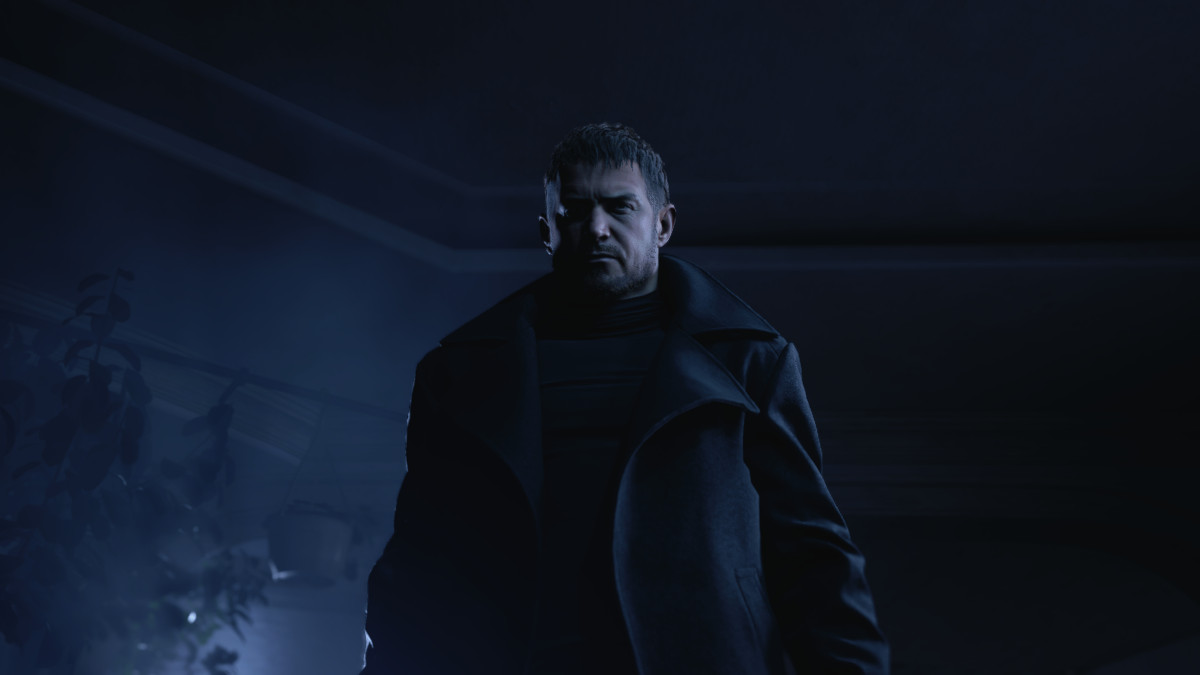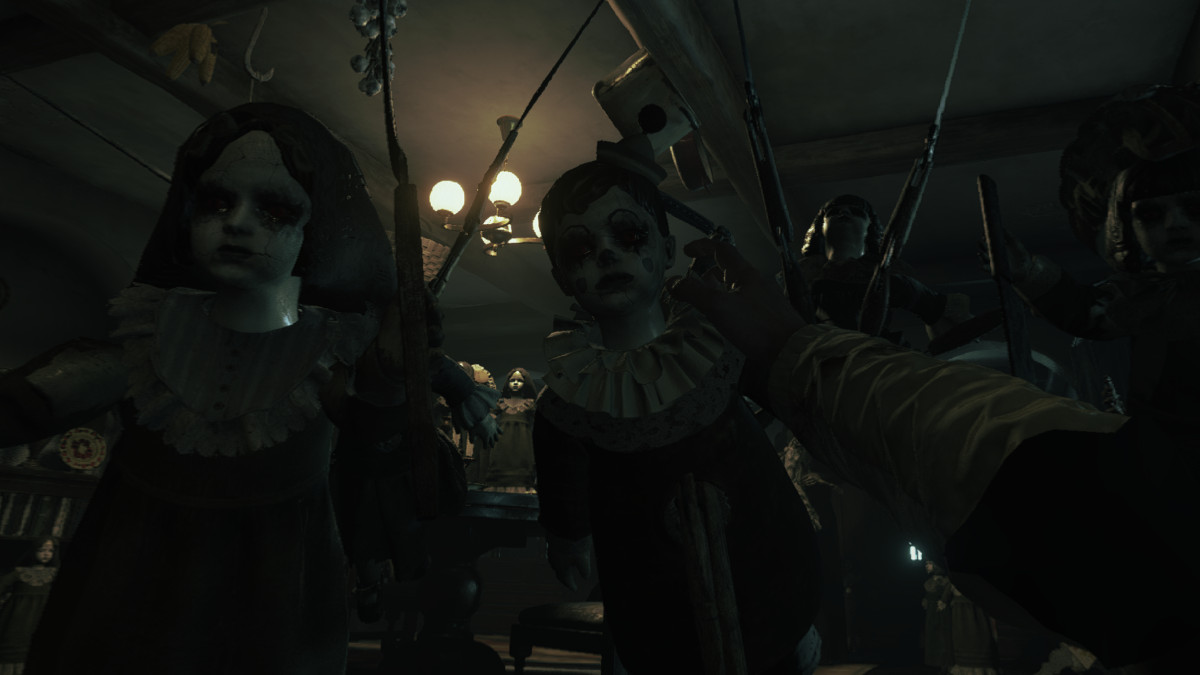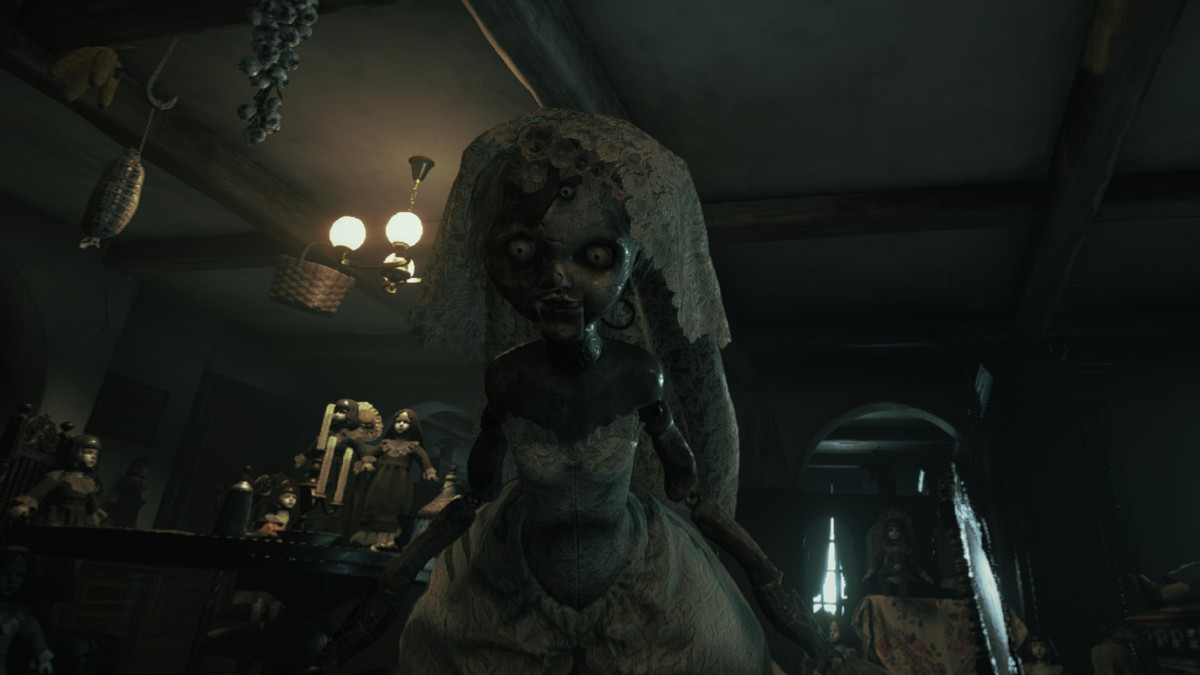The Impact of VR on Resident Evil
[Everyone welcome Smangaliso to the Destructoid front page! They’ll be working for us in a freelance capacity, and they have an extensive career in games writing; most recently producing some really interesting work on the Horizon, Zelda, Pokemon, and The Last of Us franchises. They’re a great fit for Destructoid, and we’re excited to have them.]
Over the years, Resident Evil has repeatedly reinvented itself. Some experiments, like the focus on action-oriented gameplay, haven’t always been a hit, though some changes, such as the use of a first-person perspective, have managed to breathe new life into the franchise. In recent times, Resident Evil has been dipping its toes into virtual reality (VR), and the results have been nothing short of phenomenal.
Since Resident Evil 7 received its VR mode in 2017, the series has remained the go-to spot for the scariest virtual reality experiences. Most recently, Resident Evil Village’s VR mode has continued carrying the torch on the PS VR2, and gamers can look forward to Resident Evil 4‘s remake also receiving a VR mode. Judging by the success of Capcom’s experiments, VR could be an integral part of RE‘s future if wielded correctly.
Resident Evil 7 is already a pretty terrifying game when played in pancake mode. When things are taken to into VR, a whole new realm of horror is introduced. It isn’t possible to simply turn away from a scary scene anymore, leaving players feeling truly trapped in Ethan’s nightmare as he tiptoes throughout the Baker family’s house. The action elements that the franchise has increasingly embraced also benefit from VR, as the gunplay is far more realistic. Players now have to physically reload and cock their weapons before firing, which becomes an overwhelmingly intense task when hordes of enemies are approaching.

Perhaps the greatest impact that VR has had on Resident Evil can be found in the way it has been able to revitalize titles, giving gamers a good reason to return to games they’ve already completed. This is true for Resident Evil Village which feels brand new when played in VR. The scares are taken to new heights, the gunplay is more involved, and the environments feel more immersive than ever. The same is also the case with Resident Evil 4, a game that was originally released in 2005. Its VR version, released in 2021 for the Quest 2, was more than enough of a reason to revisit the classic.
VR in Resident Evil 4 Remake and Beyond
The size of the player base the Resident Evil VR games have generated gives a good indication of just how powerful virtual reality has been in intensifying the franchise’s popularity and dominance within the horror genre. According to Capcom’s official stat tracker, Resident Evil 7 VR has been played by over 1.17 million players, and this is a shocking number when one remembers that the PS VR has sold around five million units. Furthermore, at launch, Resident Evil 4 VR was the fastest-selling game of all time on the Quest 2. This is a clear indication of how well the franchise thrives in virtual reality, and the potential it has as a trailblazing VR horror franchise.
What is most striking about the franchise’s foray into VR is that, despite providing unmissable horror experiences, the games are undeniably flawed. With Resident Evil 7, this is most apparent with the visuals which take a significant nosedive in VR mode. In Resident Evil Village, interacting with one’s surroundings is sometimes an immersion-breaking experience because not everything is manipulable. Resident Evil 4‘s upcoming VR mode has a chance to learn from the mistakes of its predecessors, though it is not likely to be flawless as, like RE Village, it is not a native VR title.

Nevertheless, VR paints a deliciously dark future for Resident Evil. The platform could continue to be used to revitalize classics, with Resident Evil 2 Remake and Resident Evil 3 Remake being prime candidates. The revitalizing power of VR could also be applied to some of the less popular entries in the series, including Resident Evil 6. In addition to bringing renewed attention to the franchise’s best titles, it would also help to cement RE‘s reputation as one of the scariest experiences available in VR. With virtual reality gaming still in its adolescent stage, RE has the chance to establish itself as a leader in VR horror, much like it has, through years of impactful entries, made itself synonymous with the survival horror genre.
Although virtual reality gaming is certainly not new, it still feels like the platform is gaining its footing as it tries to establish itself as a worthy companion to traditional gaming. Resident Evil has made the transition easier for some, as it illustrates that the platform is not only capable of providing full-scale AAA experiences, but it is also able to greatly enhance them. Though the franchise still has a long way to go before it presents a perfect VR horror experience, it already seems to be miles ahead of many of its competitors.








